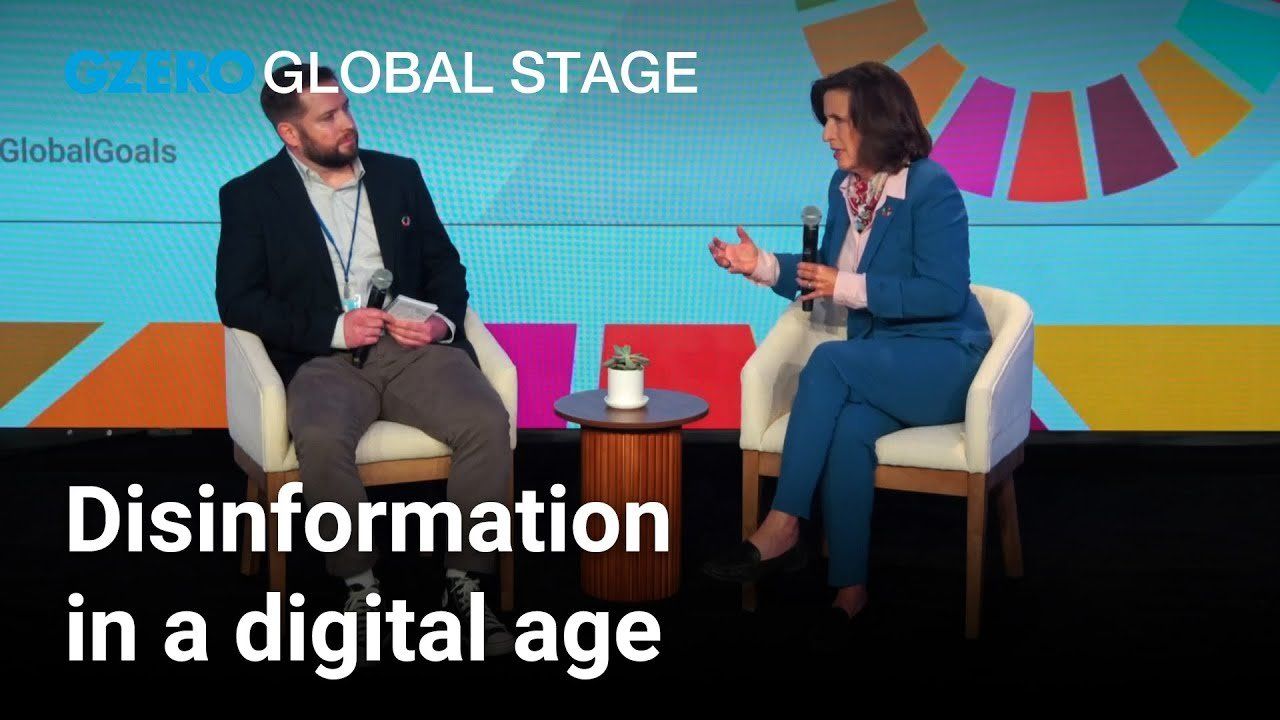September 28, 2024
Disinformation is running rampant in today’s world. The internet, social media, and AI — combined with declining trust in major institutions — have created an ecosystem ripe for exploitation by nefarious actors aiming to spread false and hateful narratives. Meanwhile, governments worldwide are struggling to get big tech companies to take substantive steps to combat disinformation. And at the global level, the UN’s priorities are also being hit hard by these trends.
“We can't bring about and generate stability in fragile environments if populations are turning against our peacekeepers as a result of lies being spread against them online. We can't make progress on climate change if people are being led to believe first of all, that maybe it doesn't even exist, or that it's not as bad as they thought, or that it's actually too late and there's nothing that they can do about it,” Melissa Fleming, the UN's Under-Secretary-General for Global Communications, told GZERO in a conversation at the SDG Media Zone during the 79th UN General Assembly.
“The UN alone cannot tackle these problems without civil society, without people. And the people are what drives political agendas. So it's really important for us to work on our information ecosystems together,” Fleming added.
Though Fleming said that many in the UN are excited by AI's myriad potential benefits, she also emphasized the serious problems it’s already posing in terms of accelerating the spread of disinformation—particularly via deepfakes.
“We've spent a lot of time also trying to educate the public on how to spot misinformation and disinformation and how to tell if a photo is real or if it is fake. In the AI information age, that's going to become nearly impossible,” Fleming said.
“So we're calling on AI actors to really create safety by design, and don't leave it only to the users to be able to try to figure out how to navigate this. They are designing these instruments, and they can be part of the solution,” she added.
More For You
Walmart is investing $350 billion in US manufacturing. Over two-thirds of the products Walmart buys are made, grown, or assembled in America, like healthy dried fruit from The Ugly Co. The sustainable fruit is sourced directly from fourth-generation farmers in Farmersville, California, and delivered to your neighborhood Walmart shelves. Discover how Walmart's investment is supporting communities and fueling jobs across the nation.
Most Popular
- YouTube
President Trump’s second term has rapidly reshaped global politics, with the US wielding power more aggressively, targeting weaker countries and even allies, Stephen Walt explains on GZERO World.
- YouTube
Ian Bremmer breaks down a sudden and serious transatlantic crisis: President Trump’s insistence that the United States must have sovereignty over Greenland.
- YouTube
It’s been a year since President Trump returned to office. How has the world changed? Stephen Walt joins Ian Bremmer on GZERO World.
© 2025 GZERO Media. All Rights Reserved | A Eurasia Group media company.
